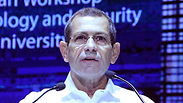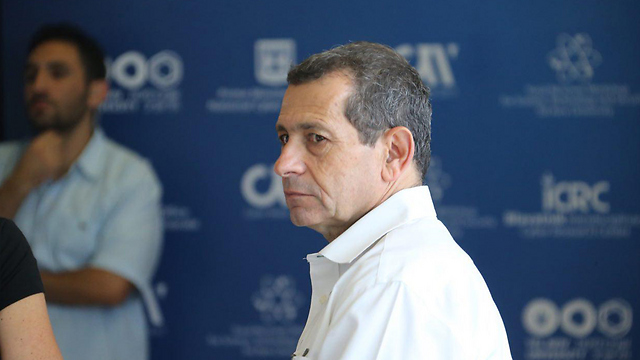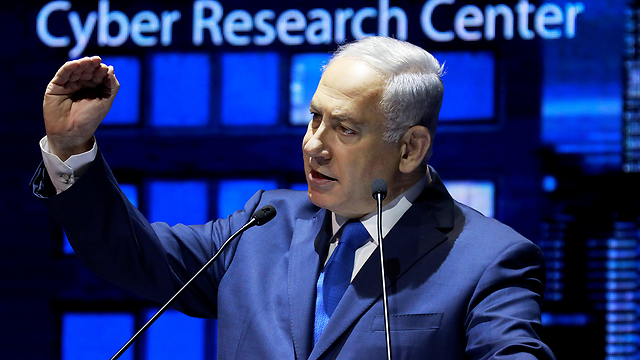

Shin Bet director: Hackers experience 'unexpected errors' when targeting Israel
Director Nadav Argaman says his agency was able to thwart many terror attacks thanks to cyber security activity, saying Israel's intelligence agencies play both defense and offense when it comes to threats in the online world.
Shin Bet director Nadav Argaman said Tuesday the agency has thwarted many terror attacks thanks to cyber security activity, further noting that "hackers experience unexpected errors" when trying to target Israel.
Speaking at the annual Cyber Week conference at Tel Aviv University, Argaman said the Shin Bet is conducting its cyber warfare in cooperation with the IDF's Intelligence Directorate, the Mossad and other partners from around the world.
Argaman said that along with its other partners in cyber warfare, since the beginning of 2016, the Shin Bet has been able to identify and stop some 2,000 would-be terrorists before they could carry out their planned attacks.
"The groundbreaking technological improvements, along with knowing the situation on the ground and conducting operational activity, contributed greatly to decreasing terrorism and the threat of lone wolf attackers," he said.
Explaining how significant cyber threats are, Argman said, "Thwarting terrorism in the physical world will normally cause damage to the terror infrastructure, (which the enemy) needs to recover from. In the cyber world, after a Trojan horse has been neutralized, all the attacker needs is to change a few lines of code to launch it again. Even after being neutralized, the recovery is immediate."
Therefore, "when dealing with cyber threats, we need to use unique strategies," he asserted. "Just like in the physical world we do not settle for passive defense, but rather also go after terrorists, the same applies to cyber warfare. We are learning the rival's action patterns and how to strike it using the element of surprise and other methods."
Prime Minister Benjamin Netanyahu addressed the conference on Monday, saying Israel has become one of the world’s top five powers in cyber security, and "the whole world" is interested in Israeli cyber technology.
"Cyber security is a constant challenge," Netanyahu said. "Every single thing is being digitized, and the difference between hi- and low-tech is being erased. As that happens, in country after country, in industry after industry, as we enter the internet of things, the need for cyber security is growing exponentially."
The prime minister added that cyber attacks are a threat for all governments today, with Israel addressing dozens of attacks every month. To combat the threat, Netanyahu took credit for creating the National Cyber Defense Authority to streamline information sharing between government, the private sector and "various organizations."
The goal, he said, is "not only to respond to attacks, but to prevent them—with early warning, with guidance, by teaching systemic doctrine... eventually all major companies will be (part of the cybernet) because everyone needs it. We are ready to cooperate with other countries and with other governments, because in general—again, with some reservations—we're better together," Netanyahu said.
The head of the IDF's C4I and Cyber Defense Directorate, Maj. Gen. Nadav Padan, also spoke at the conference on Monday, saying the military has to fight online against "relatively unsophisticated players such as Hezbollah or Hamas, who manage to harass us quite a bit using simple tools. Unlike in the past, we realize today that we must wage a proper campaign against them, and this requires us to have technological and operational superiority."
Padan noted the threats in the cyber world have led to the IDF facing bigger challenges. "If in the past we knew how to identify those who threaten us, today the playing field has expanded so much that the rules of the game have changed and continue to change all the time."
TPS contributed to this report.

















